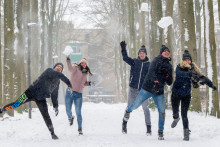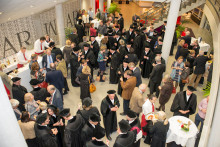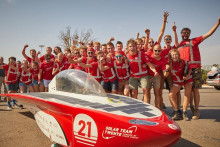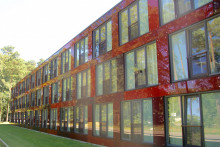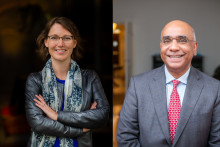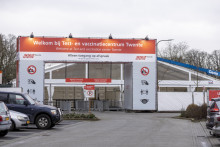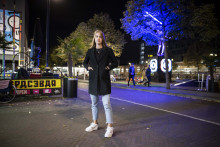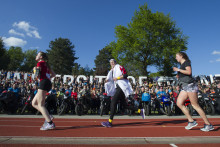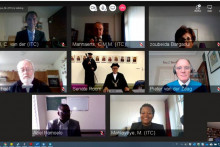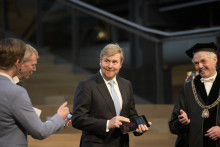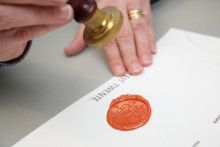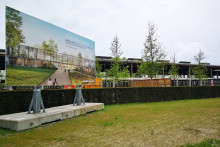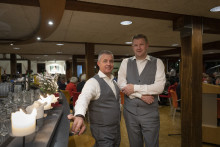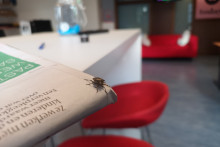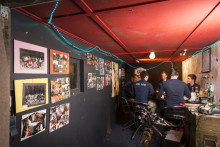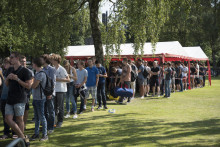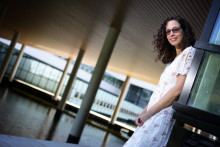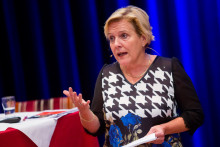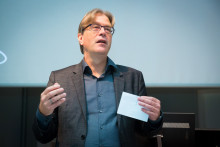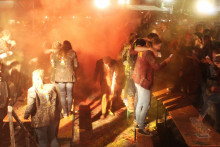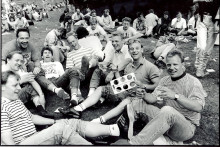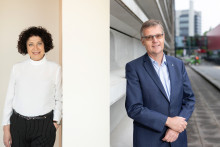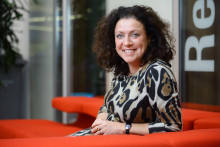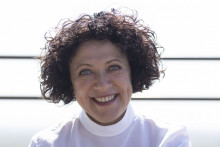Granted, looking at the past five years as ‘history’ and trying to determine patterns in it, that can be very tricky. Professor Tanya Bondarouk, who has worked at the University of Twente for over twenty years, has however observed many positive developments in the recent past. ‘When I think of changes in the last years, I think of more harmony. I feel that we are more united now,’ she says.
‘The UT now realizes that you can’t study technology without studying people’
While the UT faculties and departments could be described as separate islands in the ‘olden days’, professor Bondarouk has experienced a major shift in that regard. ‘We work together better across faculties and disciplines now. Only about ten years ago, it was very uncommon for scholars from technical and social science disciplines to work together, but now there is a truly mutual interest in collaboration. We are not just doing it because of rules for applying for grants, we feel that we need to work together in order to make an impact. The UT now realizes that you can’t study technology without studying people. This is unique in the academic world. Interdisciplinary research has improved a lot. We don’t just talk about it, we are really doing it. We try to understand each other.’
‘People first’
As the professor points out, this approach has even manifested in a change of the UT’s official motto, when in 2019 it moved from ‘high-tech human touch’ to the ‘people-first university’. ‘This switch was very important to me,’ says Bondarouk. ‘I like the warm and human way we approach strategy development now. I have no idea what the strategy plans were in the past, but I’m very aware of the current ones. Over 600 people participated in creating it. It seems that we all feel: if not us, then who? The changes won’t come, unless we take the responsibility to bring them. People feel more committed to making the university better together. We might not even fully realize how good this development is.’

Holi festival at the UT, 2019
More than a degree
It has not been all roses at the UT, of course. Eline van Hove, alumna of Applied Mathematics who studied at the UT from 2012 until 2019, has noticed that some aspects of ‘campus life’ became more difficult recently. ‘I was in the last generation of students before the TOM model was introduced. I still received financial support from the government, I had the possibility to take more years for my studies. I definitely see myself as part of the lucky generation. I feel that the pressure on students has tremendously increased since then.’
‘When I started, it was totally normal for students to do all kinds of activities, to be on many associations, to do board years and so on,’ continues Van Hove. ‘It was expected that your studies would take longer. However, I noticed a shift in this. I did a board year at Student Union and I was a member of AEGEE, so at one point I was a fifth year student starting her Master. I met a fellow student who was completely astonished by this. I had to explain how I did that, for him it was unheard of. When I started, this was the norm! In 2016 Student Union’s focus was ‘More than a degree’. We tried to encourage students to do more than just study. But we noticed it was a challenge for associations to fill boards and organize committees.’

Culture festival, 2018
English
As of January 2020, English became the official working language at the University of Twente. A change that has been in the making for many years, as part of the UT’s internationalization strategy. ‘Internationalization was certainly a big topic during my study years,’ remembers Eline van Hove. ‘The student population was changing, the UT was really trying to attract international students. It was turning into a centre of the world, rather than just a university in a corner of the Netherlands. In my time, it felt like this whole process was just starting, but recently I attended a graduation party with people from the UT and there were only international students around. English really has become the main language, which is a big change for me. I was not really on campus anymore when the UT officially switched to English, but I was a board member of ISO, where there were many debates about internationalization of higher education, including the UT. Some people critiqued that internationalization has gone too far.’
‘English really has become the main language’
Professor Bondarouk agrees that the topics of language policy and internationalization were one of the landmarks of the last five years. ‘I truly like the Dutch language, but I see the UT language policy as one of the tools for global talent management. Having English as the main language helps with exposure to different cultures. It helps us see different interpretations and perspectives. That is why using the lingua franca – which English surely is these days – is important. That doesn’t mean that Dutch isn’t important and that it should be replaced. In practical matters, I’ve noticed that lately people always ask whether they should speak English or Dutch in a meeting. There is certainly more awareness of this. Meetings with larger audiences are generally done in English, support staff switches to English much easier than a few years ago. And funnily enough, I see that our international students are trying to learn Dutch at the same time. There is a mutual respect to understand each other.’

This relates to another theme that has dominated the discussions at the UT lately. Diversity and inclusion. ‘That is not necessarily new, but now we are moving away from gender diversity only and focusing more on diversity in all its forms,’ reflects Bondarouk. ‘There is this general humanistic movement saying that everyone should feel at home and included. We need good policies and practices for diversity and inclusion. For me, that would be the best possible step for the future.’
our eyewitnesses
Tanya Bondarouk is Professor of Human Resource Management (HRM) and Technology at the University of Twente and the leader of the HRM research group . She has worked at the UT since 1999, when she began her PhD research here. She has worked as an HRM scientist in Twente ever since and became a full professor in 2014.
Eline van Hove studied Applied Mathematics at the UT from 2012 until 2019, obtaining both her Bachelor and Master’s degree cum laude. She combined her studies at the University of Twente with studying painting at the art academy ArtEZ AKI in Enschede. After graduation, she started working as an organizational consultant at Hiemstra & De Vries in Utrecht.
Recognition and Rewarding
Diversity doesn’t only apply to the student and staff population, but also to the way we work. Work pressure and personal needs have been gaining more and more attention, thinks the UT professor. ‘About three or four years ago, we wanted to start research into talent development at the UT. There were a lot of discussions, people questioned whether it was necessary, whether we needed it. Now nobody questions that anymore. Talent development is a big movement. It relates to the Recognition and Rewarding movement on how to evaluate and support everyone in academia.’
The Declaration on Research Assessment (DORA) was signed in 2012 in San Francisco. It recognizes the need to improve the ways in which researchers and the outputs of scholarly research are evaluated. The Netherlands signed this declaration in 2019 and the UT joined immediately after. ‘And that is great,’ adds Bondarouk. ‘We need to improve our practices. We already came up with a lot of ideas and now it is time to implement them. It is time to really practice what we preach. We are working towards a new way of work management in academia. There is more focus on cherishing people’s talent so it fits their own ambitions.’

Kick-In, 2020
Overall, ‘these were cool and intense years,’ as Eline van Hove puts it. ‘I remember, at one Week of Inspiration there was a lecture about happiness. We were all asked to give our life a mark from one to ten. My answer was nine. I was so happy those years at the UT. I miss the campus and the freedom of campus life. Going to the pool during lunch, seeing all the stalls at the Kick-In opening market. I loved those days. I remember my study years as a lot of different activities, so many people, so many weird committees, so many parties, so much creativity bundled together. If it was only study, I’m not sure I would have made it to the end. That is why I really felt a lot of compassion with students in corona time. I wish for all students to experience the “full” student life. I felt really connected to the university, to the campus, to my classmates, to the city. I definitely was the lucky generation.’

Kick-In, 2021


